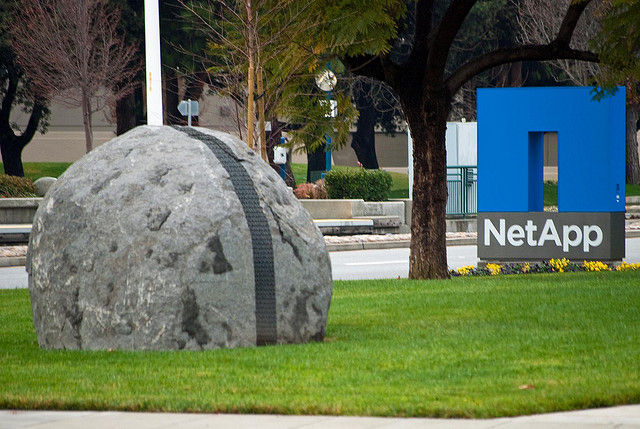
The nation's top patent court has given its seal of approval to a hefty $1.4 million award of legal fees against the largest publicly traded "non-practicing entity," Acacia Research Corporation.
The award was granted one year ago by US District Judge Gregory Sleet, and it was one of the first to be decided under the new Octane Fitness caselaw, which makes it easier for defendants to get their legal fees in baseless patent suits. On Friday, the US Court of Appeals for the Federal Circuit upheld (PDF) Sleet's decision without further comment.
The case was brought in 2010 by an Acacia subsidiary called Summit Data Systems LLC, created to assert two patents against the server storage industry. The case hinged on an accusation that NetApp infringed a pair of patents when its server-based software interacted with an end user on a Microsoft operating system. The two patents-in-suit, 7,392,291 and 7,428,581, relate to "block-level storage access over a computer network."
But Acacia had already been paid for these two patents, selling a group license to "defensive aggregator" RPX Corporation, which provided coverage for the patents to 43 member companies, including Microsoft.NetApp found out about the license during discovery, and the company argued it was covered and couldn't be sued. Summit Data backed down and was willing to drop its case, but NetApp insisted on its right to pursue legal fees.
After reviewing the evidence, Sleet utterly speared Summit on the fee motions, giving not just the full award but adding in costs that typically aren't recoverable, such as expert fees.
"Summit pursued an action against NetApp without any basis for infringement, delayed disclosing the existence of the Licensing Agreement for 18 months, extracted settlements from co-defendants worth a fraction of what it would actually cost them to defend the lawsuit, and then voluntarily dismissed its claims with prejudice prior to the court issuing a ruling on the merits," Sleet wrote (PDF).
The harsh sanction prompted an appeal by Acacia, which filed a brief (PDF) at the Federal Circuit arguing that it was being punished for doing the right thing—dismissing its case once it became "uneconomical." Sleet "assigned no culpability to NetApp for delaying," wrote Acacia lawyers. It also decried the "conscience-shocking hourly rates" that NetApp lawyers had asked for and the district court granted: $1,025 per hour for partners, $750 for associates, and $310 for paralegals.
In reply (PDF), NetApp pointed out that Acacia was one of the most sophisticated patent-licensing companies in the world, having executed more than 1,000 licenses. It collected unspecified "millions" selling these patents via the RPX license. Summit Data's last-minute attempts to suggest that non-Microsoft servers, such as those using Linux, were infringing was too little too late. The whole lawsuit had been predicated on the infringement of Microsoft-connected servers.
On Friday, the appeals court affirmed Sleet's decision without comment. Large fee awards are already making some non-practicing entities rethink what cases they want to bring, and as more of those awards are upheld on appeal, the deterrent effect will grow.
"Acacia’s assertion of frivolous claims was only thwarted by NetApp’s courage in taking the risk its fees would not be reimbursed," said Ed Reines, NetApp's appeal counsel. "Judge Sleet intended this sanction to deter 'wasteful and reckless' patent litigation, and hopefully it does."
reader comments
48